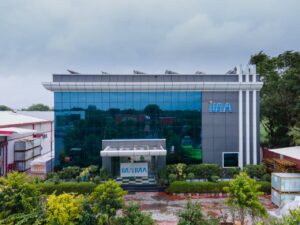
Article written by- Rasa Bihari Mishra | rbm.innovations@gmail.com | +91 84696 27669
Do you know why Chemical, Pharmaceutical, and other Process Industries are important? It’s because of the products they provide without which the modern world can not sustain.
Think of the products like:
- Life saving medicines
- Polymer based products like Plastics, Rubbers and Fibers
- Petroleum, Gas, and Petrochemicals
- Effective Agrochemicals to make Agriculture Efficient
- Dyes and pigments to make the world colorful.
- Exotic Cosmetics and Personal Care Products
- Nutritious and Tasty Food Products.
- Industrial chemicals without which many industries will get closed.
And thousands of similar products are made to meet the requirements of the society. Process Development However manufacturing at large scale is essential to make them affordable. But will you be able to make any product without having Efficient Manufacturing Process?
No, You won’t. Because an efficient manu-facturing process is essential to make any product. And it starts with Process Development.
Laboratory experimentations become necessary for Process Development. Because you need to develop the process at small scale to avoid the risks involved. While developing the process you need to optimize many important factors.
You need to consider the critical aspects like:
- The product quality must meet the customer requirements.
- The manufacturing process must be technically feasible and economically viable.
- And of course you can’t ignore the health, environment, and safety aspects.
- But developing successful manufacturing processes in the laboratory is not enough. Why?
Scale Up from Laboratory to Plant Developing successful manufacturing processes in the laboratory is not enough. Why? Because unless you are able to manufacture the products at large scale the process doesn’t serve any purpose. So the manufacturing process you have developed must meet the requirements of large scale operations.
In order to evaluate the manufacturing process for its suitability, you need to ask yourself critical questions like:
- What will be the manufacturing cost at the commercial scale? Will you be able to offer your products at a price the market wants?
- Whether the manufacturing process is safe to operate at large scale?
- Is there any environmental issue? If yes, then what are the solutions? What about the quality of your products when you manufacture them in large scale? Will it meet the product quality requirements of the customers?
Answering these questions is very difficult. Why?
Because making the products at laboratory scale is one thing. And making them at the commercial scale is another thing. They’re entirely different. And so the transition from laboratory scale to plant scale challenging.
That’s what is called Scale Up. And an efficient Scale Up procedure considering all the critical business aspects becomes necessary. But Scale Up is not that easy. Why? Because there are thousands of products and thousands of processes. All of them are different with respect to raw materials, intermediates, process parameters, processes and so on.
Then how to make Scale Up successful?
Here comes the importance of Process Engineering. Process Engineering approach is very effective for scale up in Chemical, Pharmaceutical, and other Process Industries.
Process Engineering for Efficient Scale Up
Process Engineering approach focuses on what is happening in the processes at the molecular level. And when you study the manufacturing processes at the basic level you’ll observe two types of operations. In one kind of operations there are molecular changes. Here irrespective of the processes used the molecules are changing. Sometimes these processes are called Unit Processes. In the other type of operations there’s no change in the molecules. Though various types of operations are utilized the molecules remain same. Sometimes these processes are called Unit Operations.
Let’s discuss about them one by one.
Processes with Molecular Change There are different processes where the molecules are getting changed like:
- Chemical reactions are used to synthesize chemical compounds.
- Fermentation processes are utilized to make many useful products.
- Sterilization and Pasteurization processes are used in food industries to avoid microbial spoilage of the products. Here the microor-ganisms are killed by destroying the biochemical molecules in the organisms.
- Other miscellaneous processes where molecular changes are taking place. Processes Without Molecular Change You can find a wide number of manufacturing processes where no molecular changes are taking place.
When you talk about the Unit Operations some of them play very important roles in almost all manufacturing processes like:
- Heat Transfer
- Mass Transfer
- Mixing
Mechanical Processes are very important without which no manufacturing process can be done.
There are three categories:
- Mechanical Processes involving Solids
- Mechanical Processes involving Solids and Fluids
- Mechanical Processes involving Fluids
In most of the manufacturing processes employed in Chemical, Pharmaceutical, and other Process Industries you’ll observe two parts. One is molecular transformation where the product molecule is formed. And in the other is separation where the product molecules are separated and purified to make them suitable for the customers.
Most of the Separation Processes do not involve any molecular changes. Once you categorize the manufacturing processes into different well defined groups the Scale Up becomes easier. If you’re interested in successful manufacturing at commercial scale you must optimize the process development.
Optimize the Process Development for Scalability
Technical feasibility and economical viability are critical for the success of any process or product idea. So it’s necessary to test and optimize the process ideas in the laboratory.
But unless the laboratory process is suitable for implementation at commercial scale the laboratory process development becomes useless. That’s precisely the reason why you must ensure the scalability at the laboratory experimentation itself. In fact it helps to start process engineering intervention from the beginning.
Process Engineering intervention at the laboratory development stage has got many advantages like:
- Collection of relevant Data;
- Check the feasibility at plant scale;
- Minimizing the Capital Investment;
- Taking care of Safety and Environmental aspects.
As far as efficient scale up is concerned it’s necessary to understand and optimize the process as much as possible. So it will be necessary to do a huge number of laboratory experimentations.
Design of Experiments
Classical optimization procedures take one parameter at a time. It calls for more experiments. And it becomes difficult to optimize the process.
As for example you are optimizing a process having critical parameters like temperature, pressure, and pH. When you optimize the temperature keeping other two parameters at a constant level you are not doing overall optimization.
But it’s different with Design of Experiment approach. Here you are optimizing multiple parameters simultaneously using statistical models. It results in minimizing the number of experiments and optimizing the process in a better way.
Direct Scale Up or Piloting
Once you develop an efficient laboratory process you have completed the first step. And if you have taken care of the scalability aspects you are sure of smooth Scale Up. Now the question comes whether to go for commercial scale directly or use an intermediate pilot stage?
Direct scale up involves huge risk. Though piloting can reduce the risk involved it calls for time and money. So what is preferred?
Well, it depends on the products and processes. With simple processes and especially where efficient process engineering methods exist you can safely go for direct scale up. Why?
Because enough process information and efficient mathematical models are available. But for complex and sensitive processes it’s better to go for piloting.
As for example if you’re interested in separating simple chemical compounds by distillation you can go for direct scale up. But if you are interested in scale up of the reaction processes especially those involving complex reactions and sensitive products Piloting becomes a must.
How Piloting helps in Scale Up
When you compare the processes used in a laboratory to that of commercial plant you will find a number of major differences. You make your products in the laboratory at gram scale whereas in commercial plant it’s in tons. And the equipments and the systems used for manufacturing are entirely different.
That’s the reason why Scale Up is so challenging. And the situation becomes critical when you don’t understand the process very well and don’t have sufficient information.
Pilot trials in a well designed Pilot Plant helps a lot here. In most of the cases pilot plant design is similar to the commercial plant. And generally the pilot plants are well instrumented.
Piloting is useful for two reasons:
- It helps in optimizing the processes to take care of the manufacturing cost, product quality, productivity, safety and environmental aspects in the commercial plant.
- Efficient plant design is essential to minimize the capital investment and achieve the manufacturing objectives.
For that you not only need accurate and useful process information but understand the process to the maximum extent. Piloting serves this very well.
Efficient Scale Up
We’ve already discussed why Scale Up is important. Now it’s the time to understand how to do that and achieve successful commercial manufacturing.
In order to help in Scale Up procedures we’ve classified the manufacturing processes into well defined categories. It’s to help us developing specific Scale Up procedures independent of the products.
Before getting into the details of specific manufacturing processes let’s focus on those unit operations which are used in almost all manufacturing processes. Let’s now focus on the Scale Up of three of the important unit operations – Heat Transfer, Mass Transfer, and Mixing.
Heat Transfer
Each and every step in any chemical manufacturing process happens at certain temperature. But how to achieve the temperature?
You can achieve it by changing the temperatures. If you need lower temperature then you have to cool the materials from their existing temperatures. And if higher temperature is the need, your have to heat the materials from the existing temperatures.
So you need to either cool down or heat up. For cooling you need to take out some heat from the materials. And similarly to heat you have to add some heat to the materials.
This is nothing but Heat Transfer.
Heat transfer plays a very important role in almost all manufacturing processes. So it becomes important to ensure the required heat transfer capabilities in the equipments and systems employed in the commercial manufacturing plant while doing the Scale Up.
Mass Transfer
Mass transfer deals with the movement of mass from one area to another. Where there’s a difference in the chemical potential there’ll be the movement of mass. Materials will move from the area of higher chemical potential to the area of lower chemical potential. It results in changes in the concentration of chemical components.
But why is it important?
Mass transfer controls almost all manu-facturing processes. So as far as Scale Up is concerned it becomes important to achieve the required mass transfer capabilities in the equipments and systems employed in the commercial manufacturing plant.
Mixing
Mixing in manufacturing processes deals with making non uniform systems uniform. Mixing operations and type of equipments used vary a lot depending on what you want to mix and to what extent. There are different types of mixing like liquid-liquid, liquidsolid, liquid-gas, solid-solid, solid-gas, gas-gas, and multiphase mixing. There’ll be hardly any manufacturing process where mixing is not required. Mixing is essential for heat transfer as well as mass transfer between different components or streams in any manufacturing process.
As we’ve mentioned earlier for achieving molecular changes you need to use specific manufacturing processes like chemical synthesis, biochemical processes and so on.
These specific processes have many subcategories.
When you talk about chemical synthesis the basic requirements remain the same. All types of chemical syntheses are governed by chemical thermodynamics, chemical kinetics, heat transfer, mass transfer, mixing and so on.
But when you talk about the types of chemical syntheses there are many like Halogenation, Esterification, Nitration, Hydrogenation, Oxidation, and so on. All of them need specific additional input to the basic Scale Up process.
Scale Up of Separation Processes
As we’ve already mentioned achieving molecular transformation is not enough. You need to isolate the products and purify them. Then only your products will meet the customer requirements. And you need powerful Separation Processes to do that.
There are many important Separation Processes like Crystallization, Distillation, Liquid- Liquid Extraction, Solid-Liquid Extraction, Filtration, Drying, Absorption, Adsorption, Evaporation, and so on.
When you talk about the Separation Processes the basic requirements remain almost the same. All of them can be scaled up by utilizing the input of heat transfer, mass transfer, fluid mechanics, solid handling and so on. However all of them have important requirements of their own. That’s the reason why they need specific inputs in addition to the basic Scale Up procedures.
As we’ve discussed Scale Up is very important for successful manufacturing. Using an Integrated process engineering based Scale Up method can help you achieve Excellent Manufacturing Performance.






